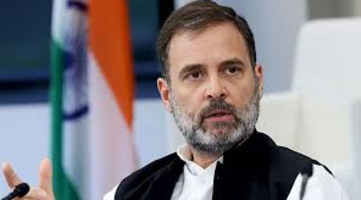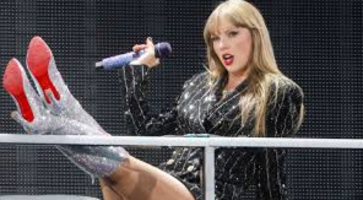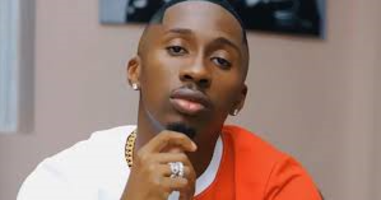When discussing influential political figures in modern India, Rahul Gandhi stands as one of the most recognizable names in contemporary Indian politics. As the scion of the prestigious Nehru-Gandhi political dynasty, Rahul Gandhi has carved his own path in the complex landscape of Indian democracy. From his early days as a reluctant politician to becoming the Leader of the Opposition in the Lok Sabha, Rahul Gandhi’s journey reflects the evolving nature of Indian politics itself.
Born into a family that has shaped India’s political destiny for decades, Rahul Gandhi represents both continuity and change in Indian political leadership. His great-grandfather Jawaharlal Nehru was India’s first Prime Minister, his grandmother Indira Gandhi broke barriers as the country’s first female Prime Minister, and his father Rajiv Gandhi led the nation during crucial transformative years. Today, Rahul Gandhi continues this remarkable political legacy while facing the challenges of modern democratic governance.
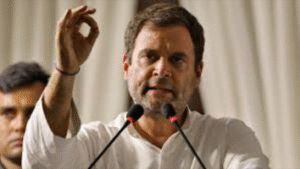
Quick Facts About Rahul Gandhi
Full Name: Rahul Gandhi
Nickname: RG, Pappu (used by critics)
Date of Birth: June 19, 1970
Age: 55 years (as of 2025)
Birthplace: New Delhi, India
Nationality: Indian
Profession: Politician, Former Congress President
Zodiac Sign: Gemini
Height: 5’9″ (175 cm)
Weight: Approximately 70 kg
Eye Color: Brown
Hair Color: Black (graying)
Net Worth: ₹20 crore (approximately $3 million USD)
Marital Status: Unmarried
Spouse/Partner: Currently single
Children: None
Social Media: Active on Twitter, Instagram, and YouTube
Early Life and Family Background
The Gandhi-Nehru Dynasty Heritage
Rahul Gandhi was born into one of India’s most influential political families on June 19, 1970, in New Delhi. His lineage reads like a chapter from India’s modern political history. His great-grandfather, Jawaharlal Nehru, was not only India’s first Prime Minister but also a key architect of modern India’s secular and democratic foundations. His grandmother, Indira Gandhi, served as Prime Minister for 15 years and was known for her strong leadership during some of India’s most challenging periods.
His father, Rajiv Gandhi, initially reluctant to enter politics, became Prime Minister at the young age of 40 after his mother’s assassination in 1984. Rajiv Gandhi was known for his vision of modernizing India and bringing technology to the forefront of governance. Tragically, he was assassinated in 1991 when Rahul was just 21 years old, an event that would profoundly impact the young man’s worldview and eventual political journey.
Rahul Gandhi’s mother, Sonia Gandhi, born Antonia Edvige Albina Maino in Italy, became one of India’s most powerful political figures. After initially staying away from politics following her husband’s death, she eventually joined the Indian National Congress and served as its President for 19 years, making her one of the longest-serving party presidents in Congress history.
Childhood and Formative Years
Growing up in the politically charged atmosphere of New Delhi, Rahul Gandhi experienced both the privileges and pressures of being part of India’s first family. His childhood was marked by tight security arrangements due to constant threats to the family. Despite this, his parents made conscious efforts to provide him and his sister Priyanka with as normal an upbringing as possible.
The Gandhi household was multilingual and multicultural, with Italian, Hindi, and English being spoken regularly. This diverse linguistic environment would later help Rahul Gandhi connect with various segments of Indian society. His upbringing emphasized the values of secularism, democracy, and service to the nation – principles that would guide his political philosophy.
Educational Journey
Rahul Gandhi’s educational journey reflects his family’s commitment to providing him with a global perspective. He began his formal education at St. Columba’s School in New Delhi, one of India’s most prestigious institutions. The school, known for its emphasis on academic excellence and character building, provided him with a strong foundation in various subjects.
For his higher secondary education, Rahul Gandhi was sent to The Doon School in Dehradun, often called the ‘Eton of India.’ This elite boarding school has produced numerous politicians, bureaucrats, and business leaders. At Doon School, he was exposed to a diverse group of students from across India and developed leadership qualities that would serve him well in his political career.
His undergraduate studies took him to Harvard University, where he enrolled in 1989. However, security concerns following his father’s assassination in 1991 forced him to leave Harvard and complete his Bachelor’s degree at Rollins College in Florida in 1994. He later pursued a Master of Philosophy degree from Trinity College, Cambridge, completing it in 1995.
Early Interests and Inspirations
During his college years, Rahul Gandhi showed interest in various subjects beyond politics. He was particularly drawn to history, economics, and development studies. His academic focus on development economics would later influence his political approach to poverty alleviation and rural development.
Unlike many political heirs who show early interest in politics, Rahul Gandhi initially seemed more inclined toward a career in business or social work. He spent time understanding various aspects of Indian society, often traveling to rural areas to observe ground realities. This early exposure to India’s grassroots issues would later become a cornerstone of his political messaging.
His inspirations included his father’s vision of a modern, technologically advanced India, his grandmother’s commitment to social justice, and his great-grandfather’s emphasis on secular, democratic values. International figures like Nelson Mandela and their approach to peaceful resistance also influenced his political philosophy.
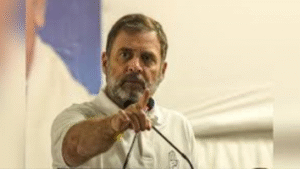
Career Journey: From Reluctant Heir to Political Leader
Before entering politics, Rahul Gandhi worked briefly in London as a management consultant with Monitor Group, a strategy consulting firm founded by Harvard Business School professor Michael Porter. This experience exposed him to corporate strategy and business analysis, skills that would later prove valuable in understanding policy implications and organizational management.
He also showed interest in technology and innovation, spending time with various startups and tech companies. His understanding of technology’s potential for governance and social change became evident in his later political campaigns and policy suggestions.
Entry into Indian Politics
Rahul Gandhi’s entry into politics was gradual and seemingly reluctant. For years after completing his education, he resisted pressure to join politics, preferring to work behind the scenes on various social projects. However, the Congress party’s declining fortunes and mounting pressure from party leaders and his family eventually convinced him to take the political plunge.
His formal political debut came in 2004 when he decided to contest the Lok Sabha elections from Amethi, a constituency in Uttar Pradesh that had been a Gandhi family stronghold. His decision to contest from Amethi was significant, as it had been represented by his father Rajiv Gandhi from 1981 to 1991.
Rise Through the Congress Ranks
Rahul Gandhi’s victory in the 2004 Lok Sabha elections marked the beginning of his formal political career. He won the Amethi seat with a comfortable margin, establishing himself as a credible political leader. His early speeches in Parliament focused on issues affecting rural India, poverty alleviation, and youth empowerment.
In 2007, he was appointed as the General Secretary of the Indian National Congress, a position that gave him significant influence over party organization and strategy. He was tasked with revitalizing the party’s youth wing and connecting with younger voters across India.
His role expanded further in 2013 when he was elevated to the position of Vice President of the Congress party. This appointment was seen as preparation for eventually taking over the party leadership from his mother, Sonia Gandhi.
Breakthrough Moments and Leadership Challenges
One of Rahul Gandhi’s most significant breakthrough moments came during the 2009 Lok Sabha elections when the Congress-led United Progressive Alliance (UPA) won a decisive victory. His campaign efforts, particularly in mobilizing youth voters and articulating a vision for inclusive growth, were credited with contributing to this success.
However, his leadership faced its first major test during the 2014 Lok Sabha elections, where the Congress party suffered its worst-ever electoral defeat. The party was reduced to just 44 seats out of 543, and Rahul Gandhi’s leadership came under intense scrutiny. This defeat prompted serious introspection about his political strategy and communication style.
The 2019 Lok Sabha elections brought mixed results for Rahul Gandhi personally and the Congress party. While the party’s overall performance improved marginally, Rahul Gandhi himself lost his traditional stronghold of Amethi to Smriti Irani of the BJP. However, he had also contested from Wayanad in Kerala and won that seat decisively, showing his ability to connect with voters beyond his traditional constituency.
Current Position as Leader of Opposition
Following the 2024 Lok Sabha elections, Rahul Gandhi is currently serving as the 12th leader of the Opposition in Lok Sabha and as the member of the Lok Sabha for Rae Bareli, Uttar Pradesh, since June 2024. This position gives him a crucial role in parliamentary democracy as the primary voice of opposition to the ruling government.
As Leader of Opposition, Rahul Gandhi has focused on holding the government accountable on various issues including economic policy, social justice, and democratic institutions. His speeches and interventions in Parliament have often addressed concerns about unemployment, inflation, and what he perceives as threats to India’s democratic fabric.
Notable Political Campaigns and Initiatives
Throughout his political career, Rahul Gandhi has been associated with several significant campaigns and initiatives. His ‘Bharat Jodo Yatra’ (Unite India March) in 2022 was one of the most ambitious political campaigns in recent Indian history. The 3,570-kilometer march from Kanyakumari to Kashmir aimed to bridge social divisions and reinvigorate the Congress party’s connection with ordinary Indians.
The yatra was notable for its scale and the personal commitment it demonstrated. Rahul Gandhi walked for over 150 days, covering 12 states and 2 Union territories. The campaign was seen as an attempt to rebrand his image from that of a privileged politician to someone willing to connect directly with people’s struggles.
Another significant initiative was his focus on NYAY (Nyuntam Aay Yojana), a proposed minimum income guarantee scheme. This policy proposal, which promised to provide ₹72,000 annually to India’s poorest families, was a centerpiece of the Congress manifesto in 2019 and demonstrated his commitment to addressing income inequality.
Awards and Recognition
While Rahul Gandhi hasn’t received many formal awards due to the nature of political life, his contributions to Indian democracy have been recognized in various ways. International media outlets have often noted his commitment to democratic values and his role in opposition politics.
His educational background and global exposure have also been recognized by various international institutions. He has been invited to speak at prestigious forums and universities about Indian politics and democracy.
Personal Life: Beyond the Political Spotlight
Relationships and Dating History
Rahul Gandhi’s personal life has been the subject of much speculation and media attention throughout his political career. Unlike many politicians who use their family life as part of their public image, Rahul Gandhi has maintained strict privacy about his romantic relationships.
Over the years, various names have been linked with him in media reports, but he has never confirmed any serious relationship publicly. His approach to keeping his personal life private stands in contrast to the increasingly transparent nature of modern political life.
There have been persistent media reports about relationships with various individuals, including some from the business and academic world, but Rahul Gandhi has consistently refused to comment on such speculation. This privacy has led to both criticism and praise – critics argue it makes him seem disconnected from ordinary life experiences, while supporters appreciate his focus on public service over personal publicity.
Marriage and Family Plans
At 55 years of age, Rahul Gandhi remains unmarried, which is unusual for someone from his social and political background. In Indian politics, marriage and family life often play important roles in building voter connections and demonstrating stability.
When asked about marriage in interviews, Rahul Gandhi has often deflected the question with humor, suggesting that his focus remains on serving the people of India. Some political analysts suggest that his unmarried status allows him greater flexibility in his political career, while others argue it may limit his ability to connect with family-oriented Indian voters.
The question of political succession also becomes relevant given his unmarried status and absence of children. As the latest in the Nehru-Gandhi political dynasty, there is natural curiosity about whether the family’s political legacy will continue to the next generation.
Hobbies and Personal Interests
Despite his public profile, Rahul Gandhi maintains several personal interests that provide insight into his character beyond politics. He is known to be an avid reader, with particular interest in history, philosophy, and development economics. His reading habits reflect his academic background and his approach to policy formulation.
Physical fitness is another important aspect of his personal routine. He maintains a regular exercise regimen and is often photographed jogging or engaging in other physical activities. This commitment to fitness was particularly evident during his Bharat Jodo Yatra, where he demonstrated remarkable physical stamina.
Rahul Gandhi also has a keen interest in technology and innovation. His consultancy experience and ongoing interest in how technology can transform governance and society influence many of his policy positions. He has often spoken about the potential of digital platforms for education and service delivery.
Travel and cultural exploration represent another dimension of his personal interests. Beyond political travel, he has shown genuine curiosity about different cultures and societies. His international education and exposure have contributed to a cosmopolitan outlook that influences his political philosophy.
Photography and nature are additional interests that provide him with relaxation and perspective. He has occasionally shared photographs from his travels and outdoor experiences, revealing an artistic sensibility that contrasts with his political persona.
Net Worth and Lifestyle
Rahul Gandhi’s net worth is around ₹20 crore, comprising his investments in mutual funds and stock market along with gold bonds and more. According to his electoral affidavit filed for the 2024 Lok Sabha elections, Rahul Gandhi declared immovable assets worth Rs 11,15,02,598 including self-acquired assets of Rs 9,04,89,000 and inherited assets of Rs 2,10,13,598.
His financial portfolio shows a diversified approach to wealth management. Gandhi’s declared assets reveal a diversified portfolio, encompassing stocks (approximately ₹4.3 crore), mutual funds (₹3.81 crore), and real estate (₹11.15 crore). This distribution suggests a balanced approach to investment and wealth preservation.
Rahul Gandhi’s willingness to publicly declare his complete financial status demonstrates his commitment to transparency, a key plank of his political platform.
Income Sources and Financial Management
As a Member of Parliament, Rahul Gandhi receives the standard salary and allowances provided to Lok Sabha members. However, his primary income sources extend beyond his parliamentary salary. Investment returns from his diversified portfolio contribute significantly to his income.
Book royalties and speaking engagements, though not his primary focus, also contribute to his income. His international education and political stature make him a sought-after speaker at various forums, both in India and internationally.
Family inheritance has also played a role in his financial position. Properties and investments inherited from his father and other family members form part of his asset base, though he has been transparent about distinguishing between inherited and self-acquired assets.
Properties and Real Estate Holdings
Rahul Gandhi’s real estate portfolio includes both residential and agricultural properties. His primary residence is in New Delhi, where he maintains a home suitable for his political responsibilities and security requirements.
His immovable assets include agricultural land at village Sultanpur, indicating his connection to rural India, which aligns with his political focus on agricultural and rural issues. This agricultural land ownership also provides him with firsthand understanding of farming challenges, lending credibility to his advocacy for farmers’ rights.
The properties are distributed across different locations, providing both personal utility and investment diversification. The declared value of these properties reflects the appreciation in real estate values over time and his prudent investment approach.
Lifestyle and Spending Patterns
Despite his substantial net worth, Rahul Gandhi is known for maintaining a relatively modest lifestyle compared to many politicians of his stature. His public appearances often feature simple clothing and minimal ostentation, which aligns with his political messaging about connecting with ordinary Indians.
His travel, both for political and personal purposes, while necessarily involving security arrangements due to his position, is generally conducted without excessive display of wealth. This approach helps maintain his image as a politician who understands the struggles of common people.
Philanthropy and social contributions, while not always publicized, form part of his spending pattern. His involvement in various social causes and support for educational initiatives reflect his commitment to using his resources for social benefit.
Brand Collaborations and Commercial Activities
Unlike many contemporary politicians who actively engage in commercial endorsements, Rahul Gandhi has maintained a clear separation between his political role and commercial activities. This approach reflects both his family’s traditional stance and his personal philosophy about the role of politicians in society.
His focus remains primarily on political activities and public service, rather than leveraging his fame for commercial gain. This stance is consistent with his criticism of the commercialization of politics and his advocacy for clean, transparent political practices.
Social Media Presence
Twitter and X Platform Engagement
Rahul Gandhi maintains an active presence on Twitter (now X), where he regularly shares his views on current political developments, social issues, and policy positions. His Twitter handle @RahulGandhi has millions of followers, making him one of the most-followed Indian politicians on the platform.
His Twitter strategy focuses on direct communication with citizens, bypassing traditional media filters. He uses the platform to share his observations from constituency visits, critique government policies, and articulate his vision for India’s future. His tweets often include photographs from his interactions with people across the country.
The tone of his Twitter communications has evolved over the years, becoming more direct and sometimes confrontational when addressing what he perceives as government failures. This evolution reflects both his growing political confidence and the changing nature of political discourse in the digital age.
On Instagram, Rahul Gandhi employs a more visual approach to political communication. His posts often feature photographs from his travels across India, showing him interacting with farmers, students, workers, and other sections of society. This visual documentation helps build his image as a politician who is genuinely connected to people’s lives.
His Instagram content also includes behind-the-scenes moments from his political activities, making his public persona more relatable and accessible. The platform allows him to show the human side of politics and the personal commitment required for public service.
Video content on Instagram includes snippets from his speeches, interviews, and informal interactions. This multimedia approach helps reach younger audiences who prefer visual content over traditional text-based political communication.
YouTube Channel and Long-form Content
Rahul Gandhi’s YouTube presence focuses on longer-form content that allows for detailed policy discussions and comprehensive presentations of his political positions. The platform hosts full speeches, interview sessions, and documentary-style content about his political campaigns.
The YouTube channel serves as an archive of his political evolution, containing content from various phases of his career. This historical record allows viewers to track his growth as a politician and the consistency of his core messages over time.
Educational content on policy issues, constitutional matters, and democratic processes also features prominently on his YouTube channel. This approach reflects his belief in the importance of political education and informed citizenship.
Fan Interaction and Digital Strategy
Rahul Gandhi’s social media strategy emphasizes two-way communication rather than one-way broadcasting. He regularly responds to comments and questions from followers, creating a sense of direct accessibility that traditional politics often lacks.
His digital team works to ensure consistent messaging across platforms while adapting content to suit each platform’s unique characteristics and audience preferences. This sophisticated approach to digital communication reflects the evolution of political campaigning in the internet age.
Live streaming of events, Q&A sessions, and real-time updates during political campaigns help maintain continuous engagement with his digital audience. This strategy has become particularly important during periods when traditional campaign activities are limited.
Controversies and Public Image
Major Political Controversies
Throughout his political career, Rahul Gandhi has faced several controversies that have shaped public perception of his leadership and political acumen. One of the most significant controversies arose from his comments about the 2008 Mumbai terror attacks, where he suggested that Hindu extremist groups posed a bigger threat to India than Lashkar-e-Taiba. These remarks generated intense criticism and debates about national security perspectives.
His ‘escape velocity’ comment about Jupiter during a speech became a subject of ridicule and memes on social media, contributing to questions about his understanding of scientific concepts. While supporters argued that the comment was taken out of context, critics used it to question his preparedness for leadership roles.
The National Herald case has been another persistent controversy. Rahul Gandhi, along with his mother Sonia Gandhi, faced allegations related to the acquisition of Associated Journals Limited and its properties. While maintaining their innocence, the legal proceedings have continued for several years, providing ammunition to political opponents.
Media Coverage and Public Perception
Rahul Gandhi’s relationship with the media has been complex and often strained. Early in his career, he was sometimes perceived as camera-shy and reluctant to engage with journalists. His initial interviews were often criticized for being scripted and lacking spontaneity.
However, his media engagement strategy has evolved significantly over the years. He now regularly participates in press conferences, interviews, and informal interactions with journalists. His approach has become more confident and direct, particularly when addressing criticism of his leadership.
The Indian media’s coverage of Rahul Gandhi has often been polarized, reflecting the broader political divisions in the country. Supportive media outlets focus on his commitment to democratic values and social justice, while critical outlets emphasize his electoral failures and question his political effectiveness.
Defamation Cases and Legal Challenges
Rahul Gandhi has faced multiple defamation cases throughout his political career, filed by various individuals and organizations who claimed to be offended by his statements. These cases reflect the increasingly litigious nature of Indian politics, where political statements often lead to legal challenges.
One of the most significant legal challenges he faced was his conviction in a defamation case related to his ‘Modi surname’ remark, where he questioned why all thieves share the ‘Modi’ surname. This conviction led to his temporary disqualification from Parliament, though he was later reinstated following the suspension of his conviction by the Supreme Court.
His legal team has consistently argued that his statements fall within the realm of legitimate political criticism and freedom of expression. The outcomes of these cases often depend on judicial interpretation of the balance between free speech and defamation laws.
Response to Criticism and Image Management
Rahul Gandhi’s approach to handling criticism has evolved from initial defensiveness to more direct confrontation. He has become more willing to acknowledge his party’s failures while maintaining confidence in his political vision and leadership abilities.
His image management strategy now focuses on demonstrating authenticity and connection with people’s real problems rather than projecting a polished political persona. This approach was particularly evident during his Bharat Jodo Yatra, where he chose to walk thousands of kilometers to directly engage with citizens.
The strategy of embracing a more confrontational stance against the ruling government has helped energize his party’s base while also attracting criticism for being overly aggressive. This balance between opposition politics and constructive criticism remains a challenge in his public positioning.
Fun Facts About Rahul Gandhi
Early Childhood Security Measures: Due to security threats faced by the Gandhi family, Rahul Gandhi grew up with extensive security arrangements. He often had to use code names during travel, and his school activities were carefully coordinated with security agencies.
Technology Enthusiasm: Despite being from a traditional political family, Rahul Gandhi has always been fascinated by technology. During his time at Harvard, he was among the early users of email and internet communication, skills that later influenced his digital political strategy.
Multilingual Abilities: Growing up in a multicultural household, Rahul Gandhi speaks several languages fluently, including Hindi, English, Italian, and Spanish. This linguistic diversity helps him connect with different communities across India and internationally.
Athletic Interests: During his school years at The Doon School, Rahul Gandhi was actively involved in various sports, including cricket, football, and athletics. He has maintained his interest in physical fitness throughout his political career.
Academic Research: His Master of Philosophy thesis at Trinity College, Cambridge, focused on the political economy of development, a subject that continues to influence his policy perspectives on poverty alleviation and economic growth.
Travel Experiences: Before entering politics, Rahul Gandhi traveled extensively across the world, often using student visas and staying in budget accommodations to experience different cultures authentically rather than through diplomatic channels.
Reading Habits: He is known to carry books during his travels and often references historical and philosophical texts in his speeches. His personal library contains works ranging from ancient Indian philosophy to contemporary political theory.
Cooking Skills: Despite his privileged background, Rahul Gandhi learned basic cooking skills during his time abroad and occasionally surprises staff and visitors by preparing simple meals himself.
Music Appreciation: He has shown interest in various forms of music, from classical Indian ragas to contemporary international artists. This appreciation for music sometimes influences the cultural events organized during his political campaigns.
Environmental Consciousness: Long before environmental issues became mainstream political topics, Rahul Gandhi showed interest in sustainable living practices and often incorporates environmental protection themes in his political messaging.
Frequently Asked Questions About Rahul Gandhi
Is Rahul Gandhi married and does he have children?
No, Rahul Gandhi is not married and does not have children. At 55 years of age, he remains one of the few prominent Indian politicians who have chosen to stay unmarried. He has consistently maintained privacy about his personal relationships and has often deflected questions about marriage with humor, stating that his focus remains on serving the people of India.
What is Rahul Gandhi’s educational background?
Rahul Gandhi has an impressive international educational background. He started his education at St. Columba’s School in New Delhi and later attended The Doon School in Dehradun. For higher education, he initially enrolled at Harvard University in 1989 but had to leave due to security concerns following his father’s assassination in 1991.
He then completed his Bachelor’s degree at Rollins College in Florida in 1994 and later earned a Master of Philosophy degree from Trinity College, Cambridge, in 1995.
How much is Rahul Gandhi’s net worth in 2025?
According to his electoral affidavit filed for the 2024 Lok Sabha elections, Rahul Gandhi’s net worth is approximately ₹20 crore (around $3 million USD). His wealth is diversified across various asset classes, including stocks (approximately ₹4.3 crore), mutual funds (₹3.81 crore), and real estate (₹11.15 crore).
His immovable assets are worth Rs 11,15,02,598, which includes both self-acquired assets of Rs 9,04,89,000 and inherited assets of Rs 2,10,13,598. He has been transparent about his financial status, regularly declaring his assets as required by Indian electoral laws, which demonstrates his commitment to financial transparency in politics.
What was the Bharat Jodo Yatra and why was it significant?
The Bharat Jodo Yatra was one of the most ambitious political campaigns in recent Indian history, undertaken by Rahul Gandhi in 2022. This 3,570-kilometer march stretched from Kanyakumari in the south to Kashmir in the north, covering 12 states and 2 Union territories over 150 days.
The yatra aimed to bridge social divisions, promote unity among different communities, and reinvigorate the Congress party’s connection with ordinary Indians.
What is Rahul Gandhi’s current political position?
Rahul Gandhi currently serves as the Leader of the Opposition in the Lok Sabha and represents the Rae Bareli constituency in Uttar Pradesh as a Member of Parliament since June 2024. He previously represented the Wayanad constituency in Kerala from 2019 to 2024. As Leader of Opposition, he plays a crucial role in parliamentary democracy as the primary voice of opposition to the ruling government.
In this position, he focuses on holding the government accountable on various issues including economic policy, social justice, and democratic institutions. Though he stepped down as Congress President in May 2019, he continues to be one of the most influential leaders in the Indian National Congress party.
Conclusion
As we conclude this comprehensive examination of Rahul Gandhi’s life and political journey, it becomes clear that his story is far from over. At 55 years of age, he stands at a crucial juncture in his political career, having evolved from a reluctant political heir to a seasoned opposition leader who has faced both spectacular failures and notable comebacks.
Rahul Gandhi’s political trajectory reflects the broader challenges facing Indian democracy in the 21st century. His emphasis on issues like unemployment, farmer distress, social justice, and democratic institutions resonates with significant sections of Indian society, even as his electoral performance has been mixed.
In the years to come, as India continues its democratic journey, Rahul Gandhi’s role as a political leader, opposition voice, and advocate for democratic values will undoubtedly remain significant.

